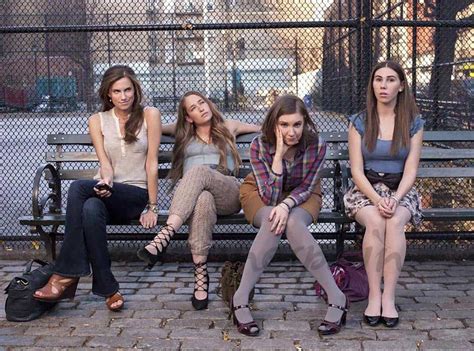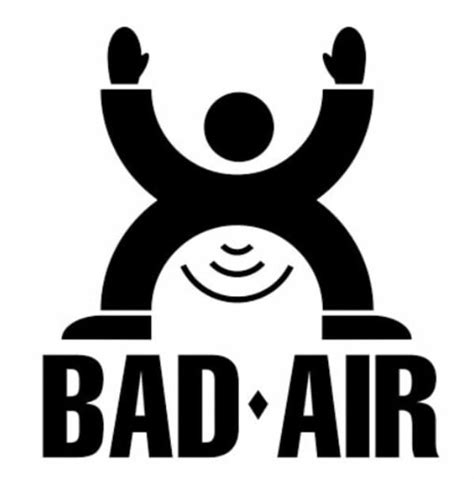
Prince William, the Prince of Wales, has reportedly blocked King Charles III’s plan to bestow royal titles upon Prince Archie and Princess Lilibet, the children of Prince Harry and Meghan Markle, deepening the ongoing rift within the British Royal Family.
The decision, stemming from concerns over the potential commercial exploitation of royal titles by the Duke and Duchess of Sussex, has stalled official confirmation of the children’s status, despite their eligibility following the late Queen Elizabeth II’s death and Charles’s accession to the throne. King Charles had reportedly intended to formally acknowledge Archie and Lilibet’s titles but faced resistance from William, who fears the move could create opportunities for Harry and Meghan to further capitalize on their royal connections.
According to royal expert Tom Quinn, speaking to the Daily Express, “Charles has agreed in principle to William’s demand that Archie and Lilibet cannot be allowed to be called Prince and Princess. But he is hanging on to the idea that they may be allowed to be styled HRH (His/Her Royal Highness) because he knows this is what Harry and Meghan want.”
The King’s hesitation highlights a complex balancing act between maintaining family unity, respecting established protocols, and mitigating the perceived risks associated with Harry and Meghan’s ventures outside the core Royal Family. The disagreement underscores the deep-seated tensions that continue to plague the relationship between the Sussexes and the rest of the Royal Family, particularly William.
Details of the Dispute
The central issue revolves around the use of the titles “Prince” and “Princess,” which Archie and Lilibet became entitled to under rules established by King George V in 1917. These rules state that the grandchildren of the sovereign are automatically entitled to these titles. However, since Harry and Meghan stepped down as senior working royals in 2020 and relocated to California, the use of these titles has become a subject of intense debate and negotiation.
William’s opposition reportedly stems from a concern that granting Archie and Lilibet royal titles would provide Harry and Meghan with increased leverage in their commercial endeavors. Since their departure from royal duties, the Duke and Duchess of Sussex have pursued various projects, including media deals with Netflix and Spotify, as well as Harry’s memoir, Spare. Critics have accused them of leveraging their royal connections for financial gain, a charge that William appears keen to avoid exacerbating.
The Daily Express article quotes Quinn stating, “William is concerned that if Harry and Meghan are allowed to style themselves Prince and Princess and HRH, they will exploit the titles for commercial gain.” This sentiment reflects a broader concern within the Royal Family about maintaining the integrity and dignity of the monarchy in an era of increasing commercialization and media scrutiny.
King Charles’s Dilemma
King Charles finds himself in a difficult position, attempting to navigate the conflicting desires of his sons while upholding the traditions and protocols of the monarchy. While he reportedly wants to appease Harry and Meghan by granting their children the HRH status, he is also mindful of William’s concerns and the potential ramifications for the institution.
The King’s desire to maintain a semblance of family unity is understandable, given the highly publicized rifts that have plagued the Royal Family in recent years. However, his attempts to find a compromise solution have been met with resistance from both sides, highlighting the depth of the divisions.
One possible compromise, as suggested by Quinn, is to allow Archie and Lilibet to use the HRH style but without the Prince and Princess titles. This would acknowledge their royal lineage without granting them the full status and associated privileges. However, it remains to be seen whether this compromise will be acceptable to Harry and Meghan, who have previously expressed frustration with the limitations placed on their royal roles.
The Implications for the Royal Family
The ongoing dispute over Archie and Lilibet’s titles has significant implications for the future of the Royal Family. It underscores the challenges of adapting to changing social norms and maintaining relevance in a rapidly evolving world. The rift between the Sussexes and the rest of the Royal Family has already damaged the institution’s reputation, and the unresolved title issue risks further exacerbating these tensions.
The controversy also raises questions about the role of the monarchy in the 21st century. While the Royal Family remains a symbol of national identity and tradition, it also faces increasing pressure to modernize and become more transparent. The handling of the Archie and Lilibet title issue will be closely watched as a test of the monarchy’s ability to adapt to these challenges.
Harry and Meghan’s Perspective
Prince Harry and Meghan Markle have not publicly commented on the latest reports regarding Archie and Lilibet’s titles. However, they have previously expressed their disappointment with the Royal Family’s treatment of them and their children.
In their interview with Oprah Winfrey in 2021, Meghan revealed that there were concerns within the Royal Family about how dark Archie’s skin might be when he was born. She also claimed that Archie was denied the title of Prince and the associated security protection, which she believed was racially motivated.
Harry echoed these sentiments, stating that he felt “let down” by his father and brother and that he had been cut off financially by the Royal Family. He also expressed concerns about the impact of the media’s scrutiny on his family’s mental health.
Given their previous experiences, it is likely that Harry and Meghan will view William’s opposition to Archie and Lilibet’s titles as further evidence of the Royal Family’s unwillingness to fully embrace them. This could further strain their relationship with the institution and make it even more difficult to find a way forward.
The Historical Context
The rules governing royal titles have evolved over centuries, reflecting changes in the political and social landscape. The current rules, established by King George V in 1917, were intended to streamline the Royal Family and limit the number of individuals entitled to royal titles.
Under these rules, the children of the sovereign, the children of the sovereign’s sons, and the eldest son of the Prince of Wales are automatically entitled to the titles of Prince or Princess. This means that Archie and Lilibet, as grandchildren of King Charles III, are technically entitled to these titles.
However, the monarch has the power to modify these rules or issue Letters Patent to change the line of succession. This power has been used on several occasions throughout history to address specific circumstances or to ensure the stability of the monarchy.
In 2012, Queen Elizabeth II issued Letters Patent to ensure that all of Prince William’s children would be entitled to the title of Prince or Princess, regardless of their gender. This change was made in anticipation of the birth of Prince George, who was the first child of Prince William and Catherine Middleton.
The current dispute over Archie and Lilibet’s titles highlights the complexities of navigating these historical rules in a modern context. While the rules may appear straightforward on the surface, their application can be highly sensitive and subject to political and social considerations.
The Public’s Reaction
The public’s reaction to the Archie and Lilibet title issue has been mixed. Some people believe that the children are entitled to their titles and that the Royal Family should respect their lineage. Others argue that Harry and Meghan have forfeited their right to these titles by stepping down as senior working royals and pursuing commercial ventures.
There is also a segment of the public that is indifferent to the issue, viewing it as a trivial matter compared to more pressing concerns. However, the controversy has generated significant media attention and has contributed to the ongoing debate about the role and relevance of the monarchy.
The public’s perception of the Royal Family is heavily influenced by the way it handles sensitive issues like the Archie and Lilibet title dispute. A transparent and fair resolution to the issue could help to restore public trust and confidence in the institution. However, a mishandled response could further damage the Royal Family’s reputation and exacerbate existing divisions.
The Future of the Monarchy
The Archie and Lilibet title issue is just one of many challenges facing the British monarchy in the 21st century. The institution is under increasing pressure to modernize, become more transparent, and adapt to changing social norms.
King Charles III has pledged to streamline the monarchy and make it more relevant to contemporary society. However, he faces significant obstacles, including the ongoing rift between the Sussexes and the rest of the Royal Family, as well as the declining popularity of the monarchy among younger generations.
The success of King Charles’s reign will depend on his ability to navigate these challenges and to ensure that the monarchy remains a symbol of national unity and stability. The resolution of the Archie and Lilibet title issue will be an important test of his leadership and his ability to bridge the divides within his family and the nation.
Expert Analysis
Royal commentators and experts have offered varying perspectives on the Archie and Lilibet title dispute. Some believe that William is acting out of a genuine concern for the integrity of the monarchy, while others suggest that his opposition is motivated by personal animosity towards Harry and Meghan.
Penny Junor, a royal biographer, has argued that William is right to be cautious about granting Archie and Lilibet royal titles. She believes that Harry and Meghan have demonstrated a willingness to exploit their royal connections for commercial gain and that granting their children titles would only encourage this behavior.
“William is very protective of the institution, and he sees what Harry and Meghan are doing as damaging to the crown,” Junor told The Daily Telegraph. “He is right to be concerned about the potential for them to exploit their titles for commercial gain.”
However, other experts have argued that William’s opposition is unnecessarily harsh and that it risks further alienating Harry and Meghan. They believe that the Royal Family should focus on reconciliation and finding a way to work together, rather than exacerbating existing divisions.
“The Royal Family needs to find a way to move forward and to heal the rift with Harry and Meghan,” said Richard Fitzwilliams, a royal commentator. “Denying Archie and Lilibet their titles is not the way to do that.”
Ultimately, the resolution of the Archie and Lilibet title issue will depend on the willingness of all parties involved to compromise and find a solution that is acceptable to everyone. However, given the deep-seated tensions within the Royal Family, it remains to be seen whether such a compromise is possible.
The Legal Considerations
The legal framework surrounding royal titles is complex and subject to interpretation. The rules established by King George V in 1917 provide a general guideline, but the monarch has the power to modify these rules or issue Letters Patent to address specific circumstances.
The use of the HRH style is also subject to the monarch’s discretion. While individuals who hold the title of Prince or Princess are typically entitled to use the HRH style, the monarch can revoke this privilege or restrict its use.
In the case of Harry and Meghan, Queen Elizabeth II initially allowed them to retain their HRH styles after they stepped down as senior working royals. However, she later prohibited them from using the HRH style in conjunction with their commercial activities.
This decision reflected a concern that Harry and Meghan were using their royal titles to promote their own business ventures, which was deemed inappropriate by the Royal Family.
The legal considerations surrounding Archie and Lilibet’s titles are similar. While they are technically entitled to the titles of Prince and Princess, the monarch has the power to restrict their use or to revoke the HRH style.
Any decision regarding Archie and Lilibet’s titles is likely to be carefully scrutinized by legal experts to ensure that it is consistent with established rules and precedents. The Royal Family will also need to consider the potential legal challenges that could arise if Harry and Meghan were to contest the decision.
The Potential for Resolution
Despite the deep-seated tensions within the Royal Family, there is still potential for a resolution to the Archie and Lilibet title issue. The key will be finding a compromise that is acceptable to all parties involved.
One possible solution, as previously mentioned, is to allow Archie and Lilibet to use the HRH style but without the Prince and Princess titles. This would acknowledge their royal lineage without granting them the full status and associated privileges.
Another option would be to grant Archie and Lilibet the titles of Prince and Princess but to place restrictions on their use. For example, they could be prohibited from using their titles for commercial purposes or from representing the Royal Family in an official capacity.
Ultimately, the resolution of the Archie and Lilibet title issue will require a willingness to compromise and a commitment to finding a way forward. However, given the complex dynamics within the Royal Family, it remains to be seen whether such a compromise is possible. The decision rests with King Charles III, who must weigh the concerns of his sons, the historical precedent, and the public’s perception of the monarchy when making his final determination.
Frequently Asked Questions (FAQ)
1. Why are Archie and Lilibet eligible for royal titles now?
Under the rules established by King George V in 1917, grandchildren of the monarch are entitled to be Prince or Princess. When Queen Elizabeth II was the monarch, they were great-grandchildren; however, with Charles’s ascension to the throne, they became grandchildren and thus eligible.
2. What is Prince William’s concern about Archie and Lilibet having titles?
William is reportedly worried that granting Archie and Lilibet royal titles would provide Harry and Meghan with more opportunities to commercially exploit their royal connections, potentially damaging the integrity of the monarchy.
3. Has King Charles made a final decision on the matter?
According to reports, King Charles is hesitant. He is inclined to grant them HRH status but is facing resistance from Prince William regarding the use of the Prince and Princess titles. No final decision has been officially announced.
4. What did Meghan Markle say about Archie’s title in her interview with Oprah?
Meghan claimed that while she was pregnant, there were concerns within the Royal Family about how dark Archie’s skin might be when he was born. She also stated that Archie was denied the title of Prince and associated security, which she implied was racially motivated.
5. What options does King Charles have in resolving this issue?
King Charles could grant both titles and HRH status, deny both, or offer a compromise like allowing the HRH style without the Prince/Princess titles. He could also issue Letters Patent to formally change their status, though this is less likely due to the controversy it would create.









